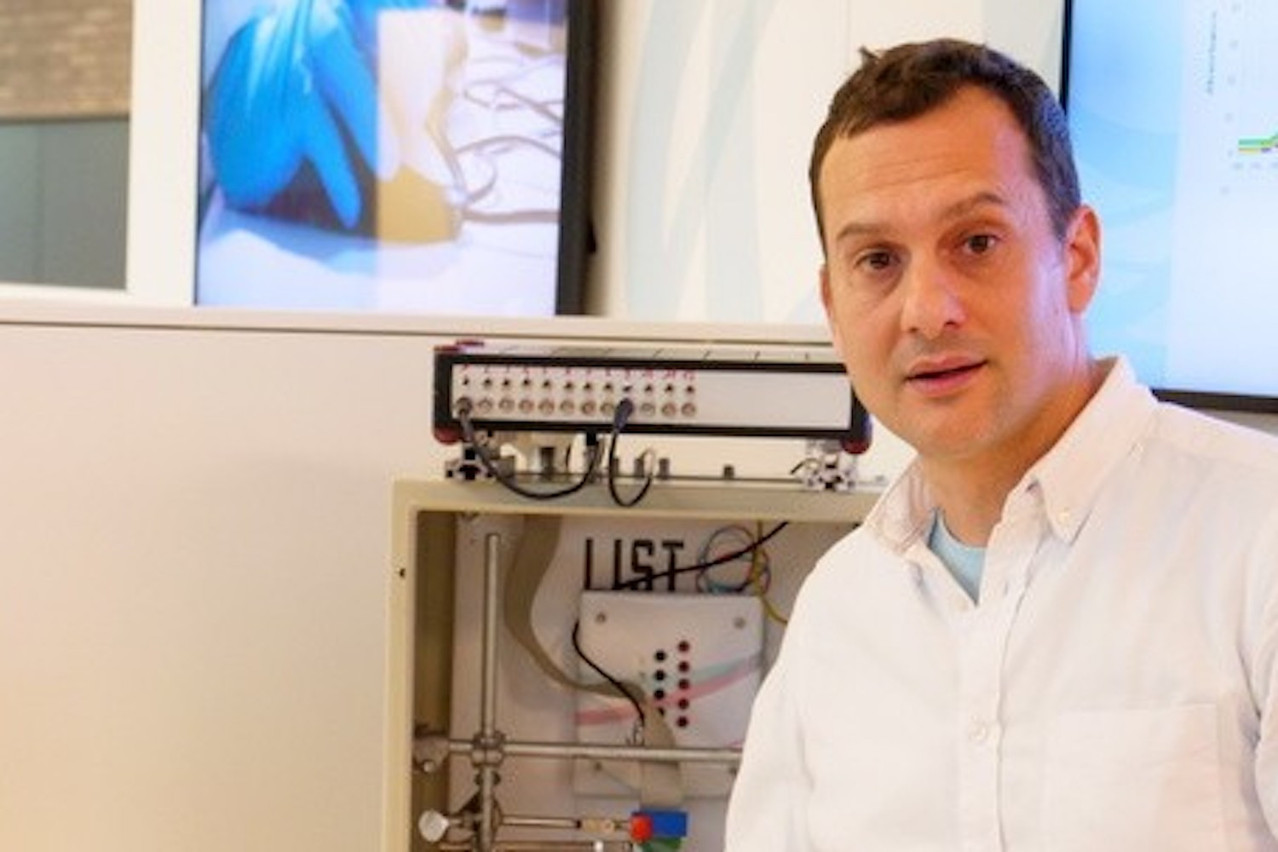The European Innovation Council (EIC) has appointed 33 ambassadors. One of them is Luxembourg’s César Pascual García, a researcher at the Luxembourg Institute of Science and Technology (List).
What is an EIC ambassador?
César Pascual García: It’s something quite new, yet to be defined. We will be the spokespersons of the EIC to tell our experience, what the EIC can bring to researchers. On the other hand, we will tell the EIC how the programme is going.
So you will have regular meetings with the researchers on the one hand and the council on the other?
This is not yet organised. Luxembourg already has a contact point with the European institutions, including the EIC: Luxinnovation. I am not here to replace them. Of course, if someone contacts me to learn about my experience or to push a disruptive idea, I will be happy to do so. At EIC level, we would like to do a summit, but we don’t have a date. I don’t think there will be a strict model.
What does it bring to Luxembourg to have an ambassador?
It allows us to represent its ecosystem, which is different because it is both young and dynamic and therefore growing rapidly. I will also be able to bring up the difficulties that researchers face at the EIC. For example, all the paperwork we have to deal with when dealing with the European Commission.
Before being appointed ambassador, you were in contact with the EIC in the framework of your Electromed project, which it is funding with €3m. It aims at “programmable in situ protein detection”. What is the aim of this project?
We are working on a screening platform for molecules that can be used for vaccines. It could make it possible to find molecules that would make it possible to create a vaccine against cancer. The same idea could have been applied to the discovery of the covid-19 vaccine.
The first step is to find out which part of the virus protein can be recognised by the immune system. For the virus, this is relatively easy. Unfortunately, when you have cancer, it is more difficult to find out which part of the protein can be recognised by the immune system. While the virus is the same for everyone, the cancer is different for each person. You need a vaccine for every cancer. We are trying to create a system that can detect which molecule you want to target and find it within a week.
If the platform were to become a reality, it would be possible to treat all cancers?
In biology, you can't say always. The vaccines we have today are 90% effective. In cancer, you can expect less.
It's more of a cure than a vaccine, right?
It’s not a vaccine in the sense that it’s used preventively, but in the sense that it trains your immune system to attack. It’s not the only factor you’re going to use.
How far along is the project?
We’ve been working on it for two years. After four in total, we should come up with a proof of concept to show that the principle works. If we can do that, then we will have to work on it on a large scale, so that it works all the time.
We talk about personalised medicine. There is no legislation to do this at the moment because vaccines have to go through a validation process, be tested in many people. Whereas here, you give the vaccine to one person, so you can’t test it beforehand. We will have to think about how to approve it.
This story was first published in French on . It has been translated and edited for Delano.
